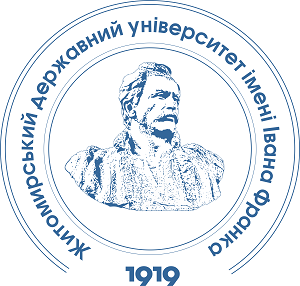EDUCATORS' MENTAL HEALTH IN WARTIME
DOI:
https://doi.org/10.32782/psy-2025-5-6Keywords:
mental health, emotional well-being, social well-being, psychological well-beingAbstract
The study is a joint effort of the NGO Smart Osvita, Zhytomyr Ivan Franko State University, and the international organization Americares (with the scientific supervision of Dr. Tara Powell, Associate Professor at the University of Illinois). The results of the study of educators' mental health in the all-Ukrainian context are described in this article. The study used the Mental Health Continuum Short Form (MHC-SF) questionnaire, which is based on a three-dimensional structure of mental health presented in terms of emotional, psychological, and social well-being. The mental health status of Ukrainian teachers was measured in the course of the Psychosocial Support for Educators (PSE) program in February-June 2024. The inclusion criteria for participation in the study were teacher education and work in the education system. The analysis of the data was based on a comparison of mental health indicators of teachers grouped by age, level of education, work experience, representation from different regions of Ukraine, experience of forced displacement, participation in hostilities, and bereavement. It was found that all the studied teachers have a moderate level of emotional and social well-being, as well as a moderate and flourishing levels of psychological well-being. The article describes the tendency of decreasing life satisfaction among Ukrainian teachers with age and the opposite tendency of increasing positive personal functioning with age. It is shown that the state of educators' mental health to some extent depends on the level of education in which they work. A residence region's proximity to the front line affects teachers' life satisfaction It was found that the highest indicators of life satisfaction and positive functioning are among educators who moved abroad and returned to Ukraine.
References
Кондратюк С. Емпіричне дослідження психоемоційних станів педагогів в умовах воєнного стану. Вісник Львівського університету. Серія психологічні науки. 2023. Вип. 18. С. 39–47.
Методики дослідження психічного здоров’я та благополуччя персоналу організацій : психологічний практикум / Л. М. Карамушка, О. В. Креденцер, К. В. Терещенко, В. І. Лагодзінська, В. М. Івкін, О. С. Ковальчук ; за ред. Л. М. Карамушки. Київ : Ін-т психології ім. Г. С. Костюка НАПН України, 2023. С. 21–23.
Міністерство освіти і науки України. Оцінювання потреб України у сфері освіти : підсумковий звіт (6.05–24.06.2022). Київ : МОН України, 2022. URL: https://mon.gov.ua/static-objects/mon/sites/1/news/2022/07/07/Pids.zvit.Otsin.potreb.Ukr.u.sferi.osvity-UK-6.05-24.06.22.pdf.
Носенко Е. Л., Четверик-Бурчак А. Г. Опитувальник «Стабільність психічного здоров’я – коротка форма»: опис, адаптація, застосування. Вісник Дніпропетровського університету. Серія педагогіка і психологія. 2014. Вип. 20. С. 89–97.
Портницька Н., Савиченко О., Тичина І., Макаренко О., Ширяєва Т. Ефективність програми «Психосоціальна підтримка для освітян». Журнал соціальної та практичної психології. 2024. № 4. С. 49–55.
Психосоціальна підтримка для освітян: Програма підвищення кваліфікації психологів закладів освіти. Americares, 2024. 73 с. URL: https://www.resilience.help/wp-content/uploads/2024/03/americares_training_program_school_psychologists_april_2024.pdf.






